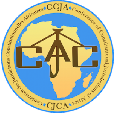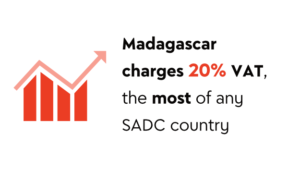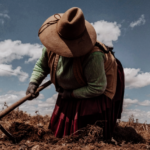In May 211, 52 representatives from 25 African countries gathered in Algeria to adopt the statute of the Conference of Constitutional Jurisdictions of Africa (CCJA).
‘The achievement of this ambitious project constitutes a deep wish of our different jurisdictions and the African legal community to federate in a common whole,’ said the CCJA’s first President, Robert Dossou, who is also President of the Constitutional Court of Benin. ‘This whole will remain attentive to the experiences accumulated by the constitutional jurisdictions within regional or linguistic groups and open to the evolutions of democracy, rule of law and human rights in the world.
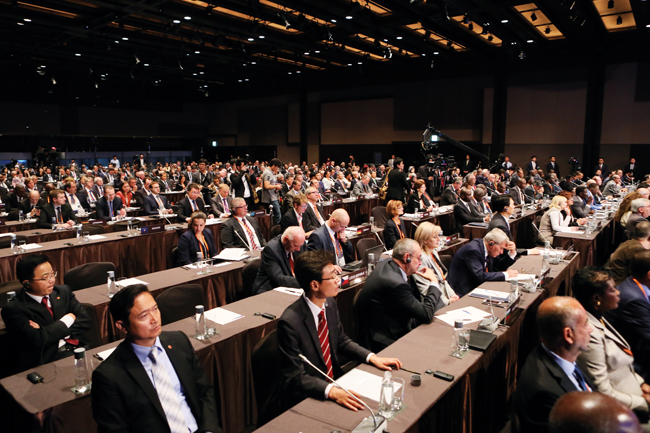
‘The necessity to create this continental space is the result of a double assessment that our jurisdictions have certainly accumulated particular and various experiences. But they have not yet, following the example of the existing spaces all over the world, established regional or linguistic belongings, a collective space of co-operation and exchange set on shared values and objectives.
‘So the creation of this conference comes to federate our energies and strengthen the commitment of our continent to universal values and principles of the rule of law, of democracy and human rights, clearly expressed in the Constitutive Act of the African Union and reasserted in the African Charter of Democracy, Elections and Governance. The co-ordination of our positions and our joint efforts to make the voice of Africa heard, as a united continent, strong with its unity and rich with its diversity, and allow it to contribute in the field of constitutional justice, constitutes an objective which is naturally common to us,’ said Dossou.
The CCJA is an independent institution that consists of constitutional judiciaries in Africa that work together so that the judiciary in each member state deepens and supports democracy by upholding constitutionalism and the rule of law.
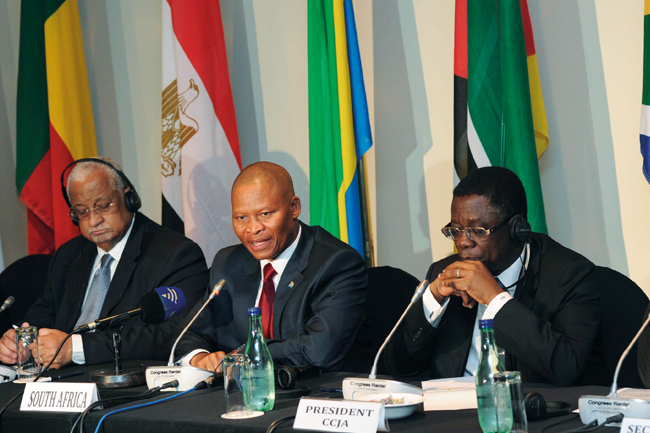
Currently, 35 African entities are full members of the CCJA, which has its headquarters in Algiers. In terms of its founding statute, the CCJA aims to bring together, in a common African framework, African jurisdictions responsible for ensuring compliance with the constitution; advance constitutional justice in Africa through dialogue and consultation; promote solidarity as well as mutual aid among its members; encourage the sharing of experiences and information in constitutional jurisprudence; establish links with the legal community, in particular academia; develop relations of exchange and co-operation between the conference and similar organisations throughout the world; and offer the contribution of Africa at the international level in the area of constitutional justice.
The need to form the CCJA was driven by Algeria, and adopted by the AU at the 15th session of the Conference of Heads of State and Government, held from 25 to 27 July 2010 in Kampala, Uganda. A Congress of the CCJA is held every two years and in April this year, the 4th Congress was held at the Cape Town International Convention Centre, with the theme Strengthening the Independence of the Judiciary and Respect for the Rule of Law. It was hosted by the South African judiciary, led by the country’s Chief Justice, Mogoeng Mogoeng, who was expected to be elected President of the CCJA for a term. There are also five Vice-Presidents.
‘There is a dire need to promote constitutional justice on the continent, and South Africa will continue advocating for independent judiciaries and observance of the rule of law on the continent,’ says Mogoeng.

The CCJA enjoys a close relationship with the AU and in April 2015 signed an MOU with the organisation ‘that will establish a partnership with the aim of increasing the effectiveness of both parties in their efforts to promote democracy, good governance, human and peoples’ rights, constitutionalism, fair and free elections, and the rule of law in Africa’.
In a press release the AU said in terms of the MOU, the two organisations will co-operate closely and ‘undertake joint actions and activities to implement the African Charter on Human and Peoples’ Rights, the 2002 African Union Declaration on the Principles Governing Democratic Elections in Africa, the African Charter on Democracy, Elections and Governance and other relevant instruments’.
Ties will be strengthened in terms of several objectives, including granting the CCJA observer status to the AU; regular consultations policies and procedures; joint training programmes and workshops; and the implementation of mutual projects. All the work of the CCJA is tailored towards strengthening major frameworks of the rule of law and stressing the work of the continent’s judiciary in protecting human rights.
As former chairperson of the Commission of the AU Jean Ping said at the first Congress of the CCJA: ‘We must emphasise the important role of constitutional courts in defence of citizens’ rights in that they are the last defence against their violation.’

